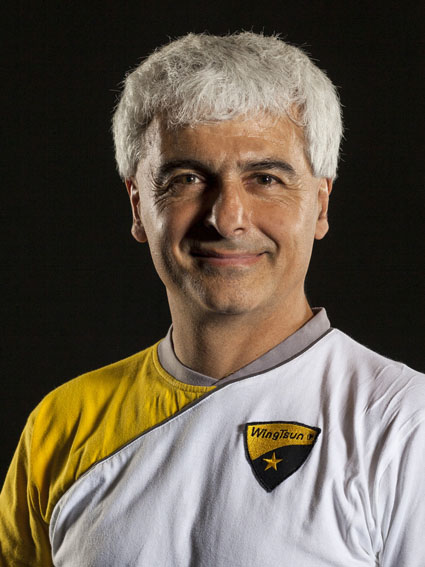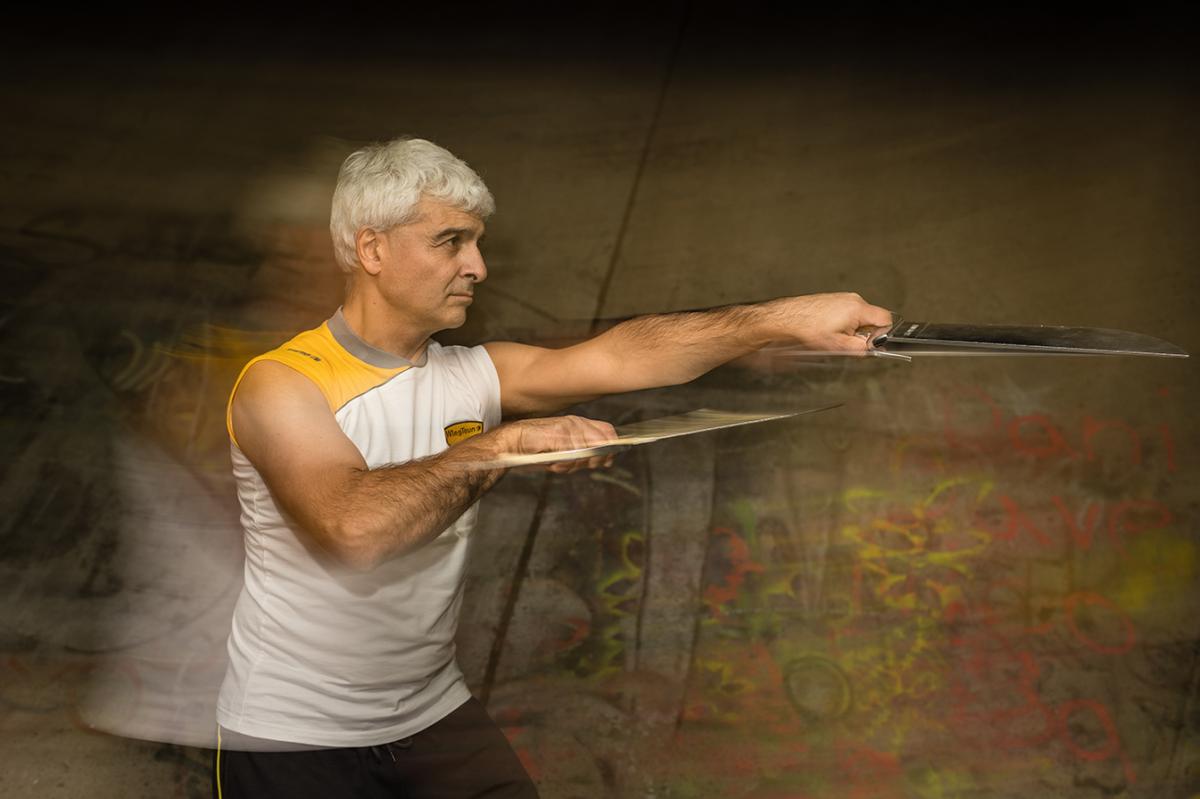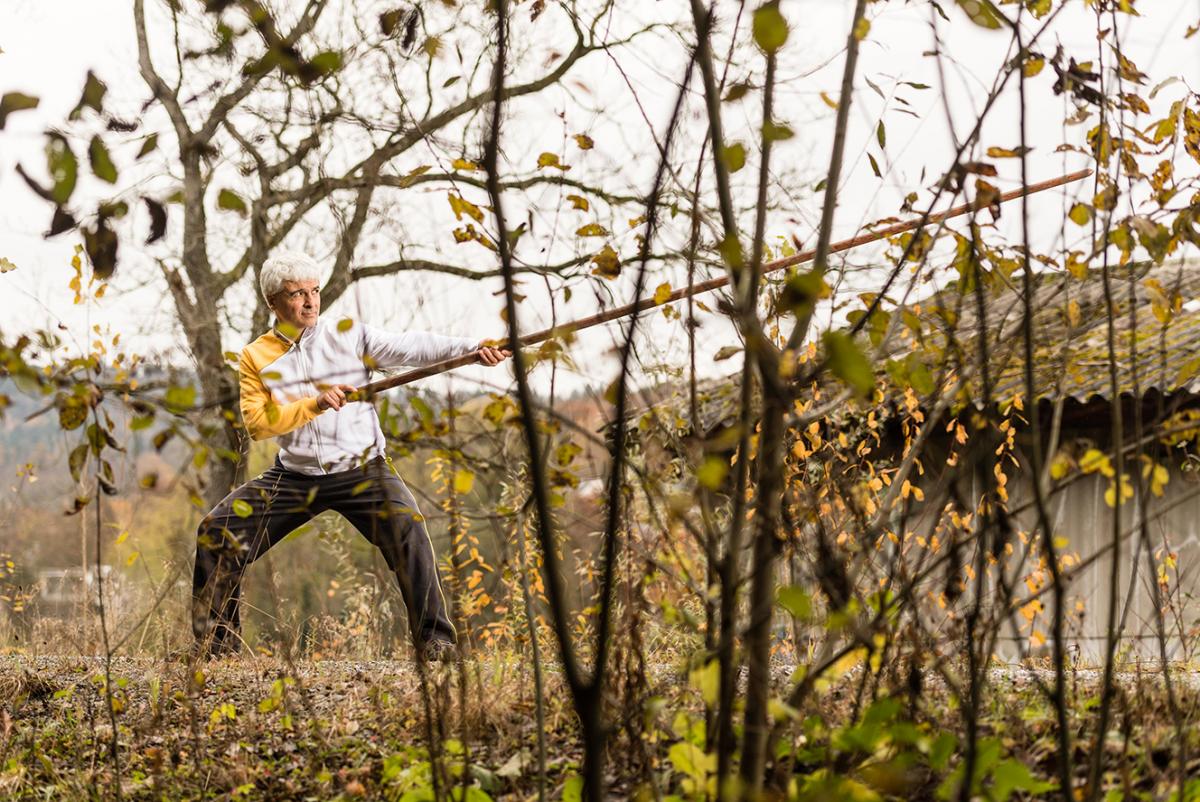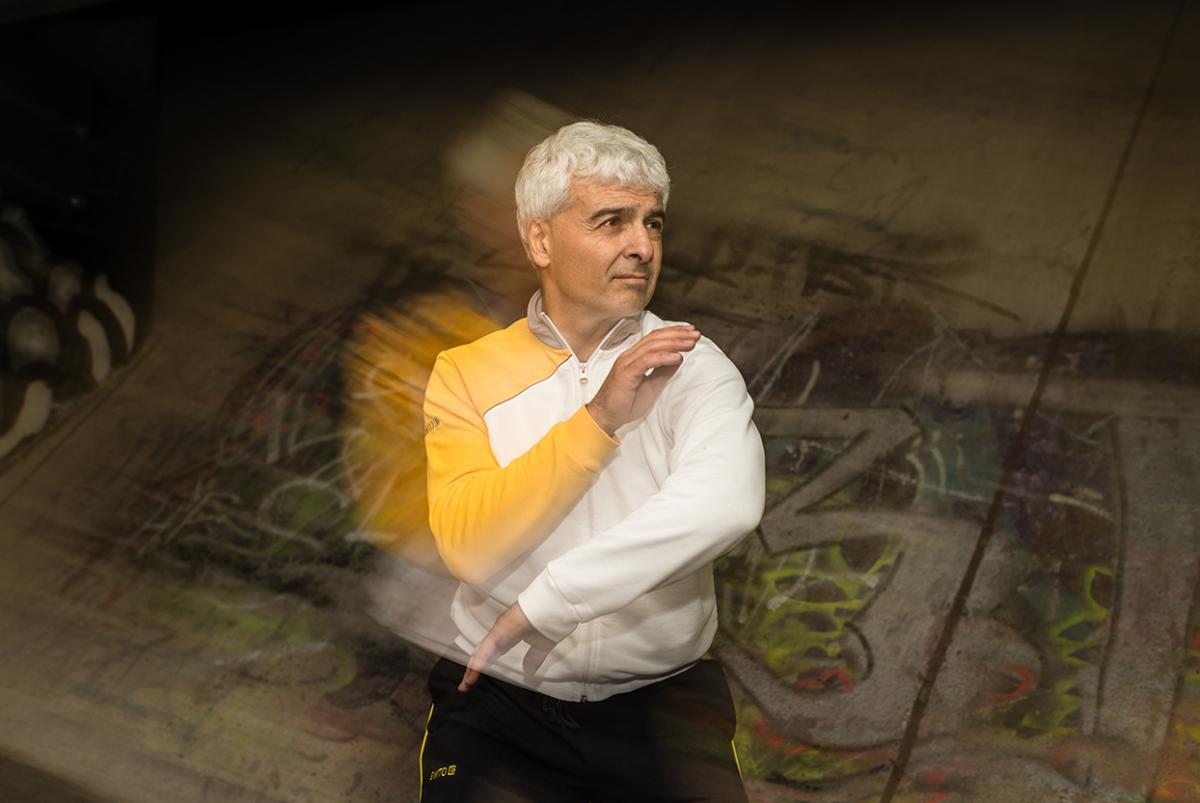Achieving outstanding skill – how can I do that?
The basic recipe for outstanding performance is passion and enthusiasm for what you are doing. These ingredients make it easy for you to remain motivated and look for constant improvement. Irrespective of how far you have progressed previously.
 If I've trained for 10,000 hours, that makes me a professional. Is that true?
If I've trained for 10,000 hours, that makes me a professional. Is that true?
In my opinion, investing your time is just one way that can lead to success. There are other deciding factors as well. One of these factors is your attitude to what you are doing. Closely observe how you train and find out if you can become more efficient. Success starts in your head.
So train very consciously, and systematically work on yourself. Constantly repeat what you have learned, but without becoming automatic – you are not aiming to create a routine. Always be mindful and mentally aware of what you are doing. (Also see my article in WT World 41)..
Where exactly do you want to go?
Be clear about why you want to achieve a goal. Do you want to be outstandingly skilful at WingTsun? Do you want to become a good instructor, teacher or even master? Or is it your aim to be a very good fighter? Perhaps a consummate martial artist? At first sight these aims appear to be similar, but they have different approaches and each requires a different form of practice.
My personal goal has always been to be as outstandingly skilful as possible at WingTsun. It gives me enormous pleasure to teach WingTsun and make it accessible to others. And fortunately I have found that teaching vastly improves my own capabilities.
A little with full attention is more than a great deal without focus
Work on your attitude. Train with full commitment, i.e. always focus fully on what you are doing and how you are doing it. Don't simply rattle off the movements.
It is better to practice for a short time with full concentration. Better to take a few minutes at more frequent intervals than do a great deal at once less often. This saves you time, and you will constantly improve. Your motivation will increase as a result – and you need that if you have ambitious aims.
When I am holding seminars or teaching classes, I often notice that students are practicing without concentration and don't have their minds on what they are doing. And I see others who are fully focussed on the matter in hand, and make good use of their time. The former consider the latter to be overkeen, while the latter think the former are spoilsports.
When comparing the effect of the two, I must unfortunately conclude that the student lacking concentration is simply wasting his time, as he will learn only little with this form of practice. Unfortunately he often also wastes the time of his training partner.
My experience tells me that if a student fails to understand what he is supposed to do, or if he is required to practice for too long, he loses concentration and therefore most of the benefit.
So if you notice that you are losing concentration, ask yourself what you have not understood. Your teacher will gladly help you. Or do you need a break? Then take one, rather than continuing unconcentrated and cheating yourself and your partner of the learning effect.
Don't train harder, but more wisely
Sometimes things don't work out as we want them to. Perhaps the previous practice time was not long enough – the body and nervous system need a while to fully assimilate movements. Even if things are still not progressing as well as you imagined after a longer period, don't give up! Thinking – or even saying "I'll never manage that" is in no way helpful. Remember, success starts in your head.
Perhaps the reason is that you should be practicing in a different way. Everybody is made differently, learns differently and understands differently. So look for a different approach, or ask your teacher to show you one, explains things differently or let you feel the movements concerned.
It may be that the time of day is not right. If you practice in the early morning because you have heard that your teacher always does that, it may be that he is at his best in the mornings while you are not. Find the time of day that best suits you personally. That will bring the best progress and great satisfaction.
The same applies whether you are working or training: set yourself goals in small stages that you can manage well. For example, during the ChamKiu form I pay attention to keeping my balance. Or during ChiSao I pay particular attention to the point of contact. Or I observe myself as I deliver a punch with a forward step while maintaining physical unity.
Never be afraid of doing something wrong, go to your limits
And since you want to become particularly good – don't just start practicing without any thought. Concentrate on what you intend to do. If you notice that things are not going too well, ask your instructor, who can usually give you hints to find another way of reaching your aim. Don't ever think that asking questions shows weakness. After all, if you were already able to do everything, you would not need to attend classes. For me personally, it is very satisfying to see a student recognise a weakness in himself. It shows me that the student is conscious of what he is doing, and that he is ready to enter a new phase. Only in that way can he improve.
For me as a teacher, every question I am asked is a blessing. I can only become really good in any field if I can explain it to others. Every question allows me to immerse myself more into the matter in hand, and understand it even better. This is my daily bread as an instructor. I am very glad that I had the opportunity to teach at a very early stage. It quickly made me realise that "teaching makes you better yourself. Only when you show, teach and explain something to others do you really deepen your own understanding."
Have the courage to become an instructor, you will find it enriches your life. And it is a step towards becoming a master.
Six points for successful training
- Set yourself a goal: what do you want to achieve today, this week or this month.
- Find out what you find difficult: what are you not yet able to do? What would you like to improve? Be as precise as possible.
- How can you improve it: can you practice in another way? Should you practice more? Or take breaks more often? Change your training partner?
- Put your solutions to the test: do you notice any improvement when you are in class?
- Implement the best solutions you have come up with.
- Assess your development: what has improved? Perhaps you could even keep a training diary.
Train consciously and you will steadily progress
Becoming a master or achieving something outstanding undoubtedly takes a very long time. But what is important is not the number of hours you invest, but rather the degree of mindfulness with which you can train.
You will achieve more if you work on something with total consciousness for 10 minutes than if you spend 10 hours reeling off movement sequences without concentration.
So train fully consciously and with mindfulness, as our time is too valuable.
Feel the energy within you when you work in this way. Your mind will not be on the length of the journey, but on the power of the moment.
Your Giuseppe Schembri







